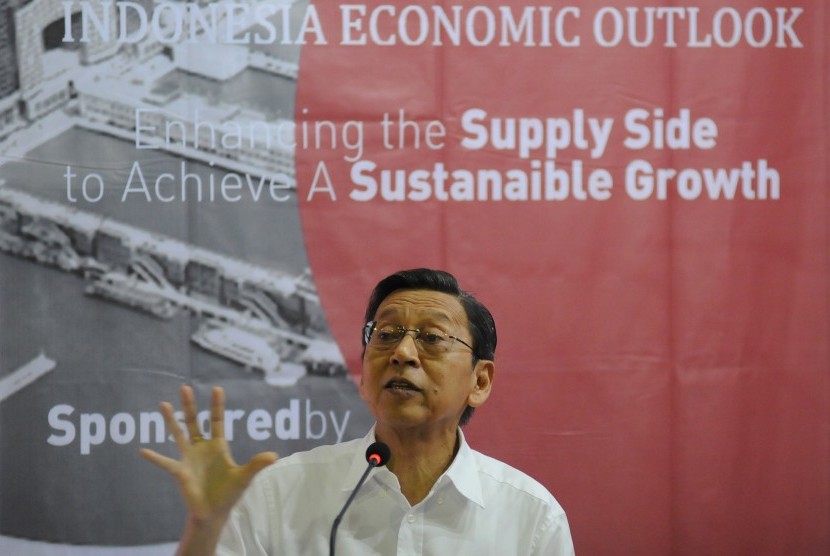REPUBLIKA.CO.ID, NUSA DUA -- The Bank of Indonesia, the country's central bank was in the front line of Indonesia's economy during the Asian financial crisis in 1997-1998 and global monetary crisis in 2008, former Vice President Boediono said.
"The central bank had the honor of being in the front line when a great financial crisis struck the country," Boediono said during a speech at an international seminar in Nusa Dua, Bali Monday.
The international seminar held by Bank of Indonesia and Federal Reserve Bank of New York is a part of the 21st Executives' Meeting of East Asia Pacific (EMEAP).
It was no easy task for the central bank to be the country's front line during the crisis as it was affecting almost all economic activities in the country, Boediono stated.
"Looking back, I am tempted to say that at the time my role in the central bank was very heavy, even heavier than being a vice president," he said exuding humor.
There were five important lessons that he took away from his experience of handling both crises, Boediono, who is also a former deputy governor for the National Bank in 1997, said.
The first was the unpredictable arrival of the crises that forced the bank to always be prepared with adequate knowledge to tackle it.
"Although both crises happened unexpectedly, we were much less prepared in 1998. Consequently, Indonesia was the most affected country among the others and took a rather long time to recover," he explained.
The second lesson, was the importance of the correct response to face the crises in order to ensure the wrong message was not spread, he continued.
"In 1998, a lot of false data and information was released, causing the establishment of incorrect policies that were not spot on. In 2008, we responded correctly to the crisis from the very beginning, which led to minimum damage and a fast recovery of the economy," he remarked.
Boediono, who was also the former finance minister, then proceeded to explain the third lesson which was not to expect coordination to go on smoothly during a crisis.
"There are tendencies to point at each other and to take decisions with minimum political risks, so when the decision is wrong, the fault is not in them," he said.
The decision making experience is an important quality while facing a crisis, but only a handful of leaders have the experience when facing a similar situation, he continued.
"During the first crisis nobody has ever experienced it before, so the decisions taken were based on the international knowledge from multilateral institutions. On the second one, we have learned our lessons from the previous crisis," Boediono reiterated.
Lastly, a supportive political climate in the country is also important in implementing effective economic policies, he said.
"The political climate in Indonesia during the latter crisis was much better than the one compared to 1998, which is why the country's economy could be back on track after merely nine months," he concluded.


